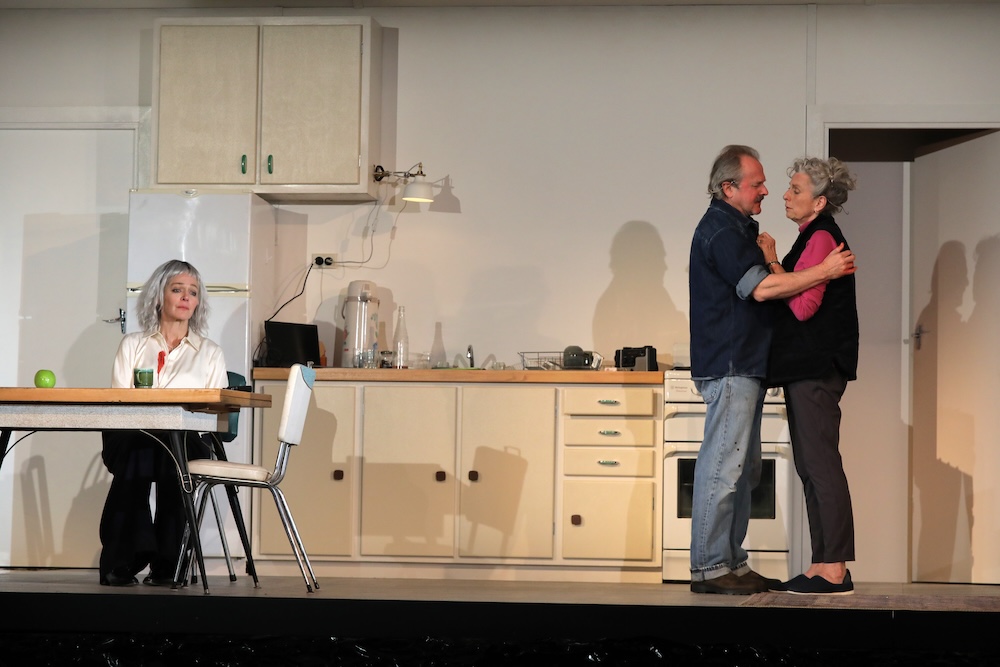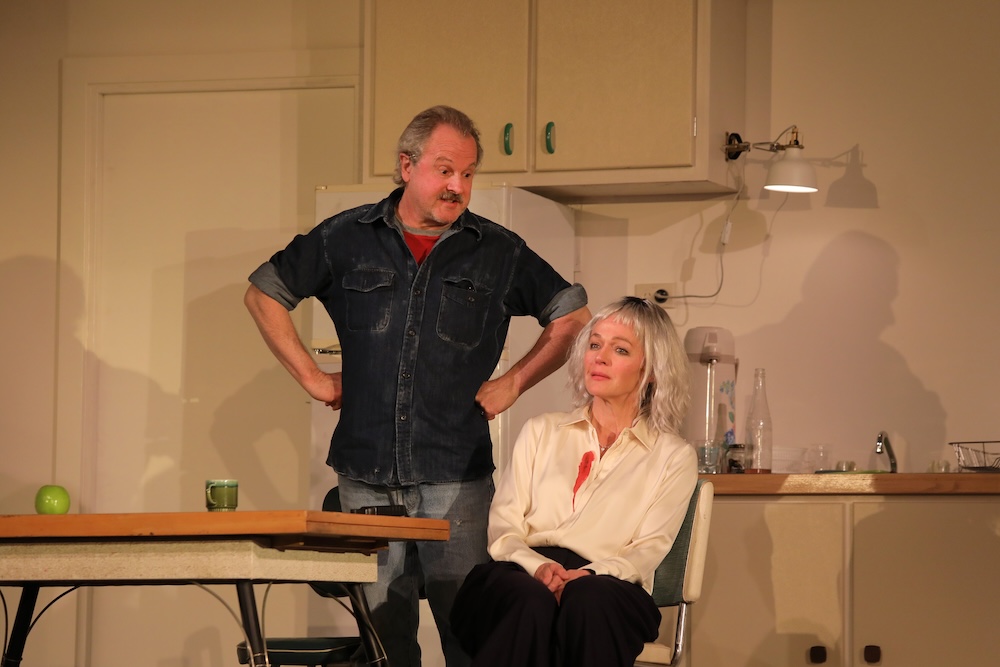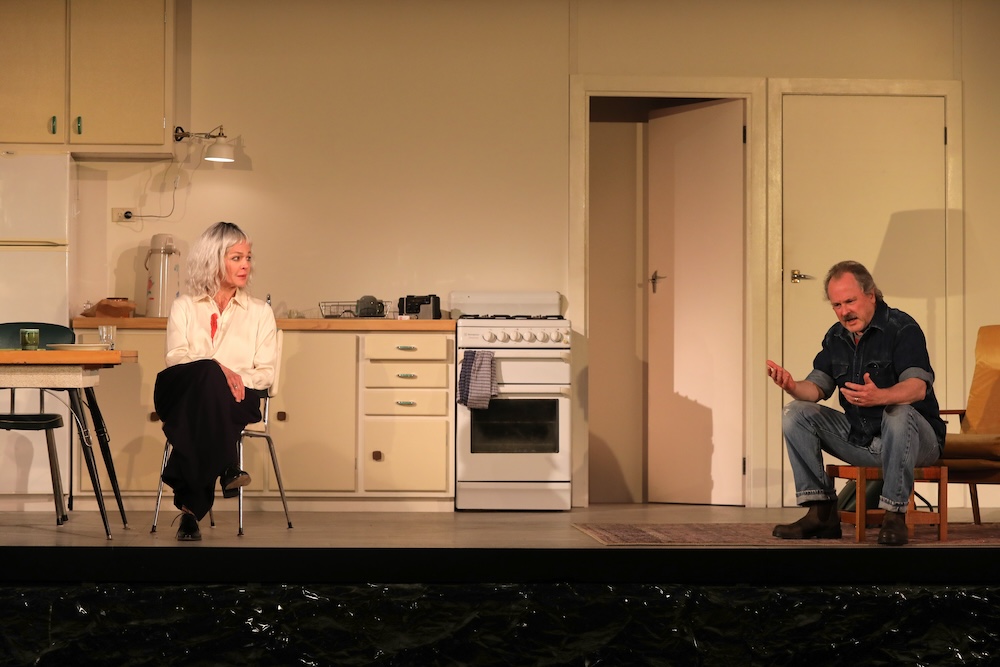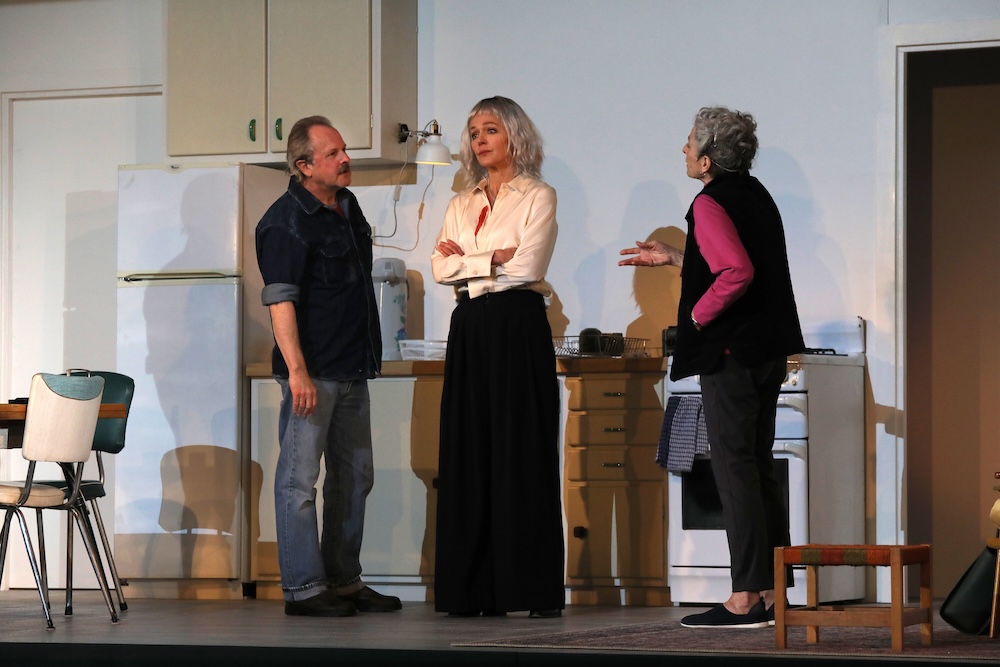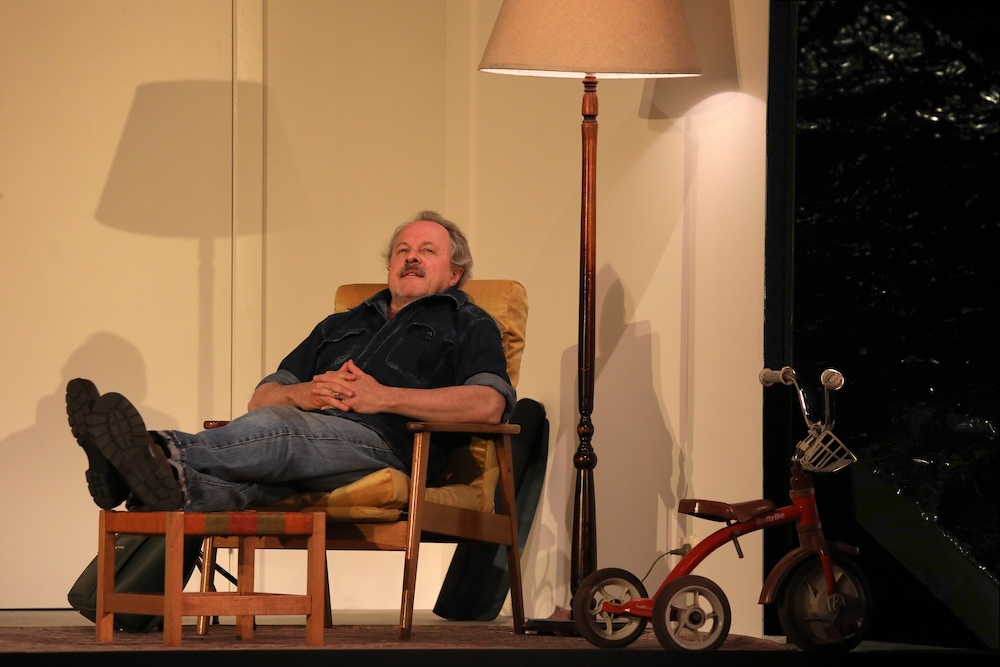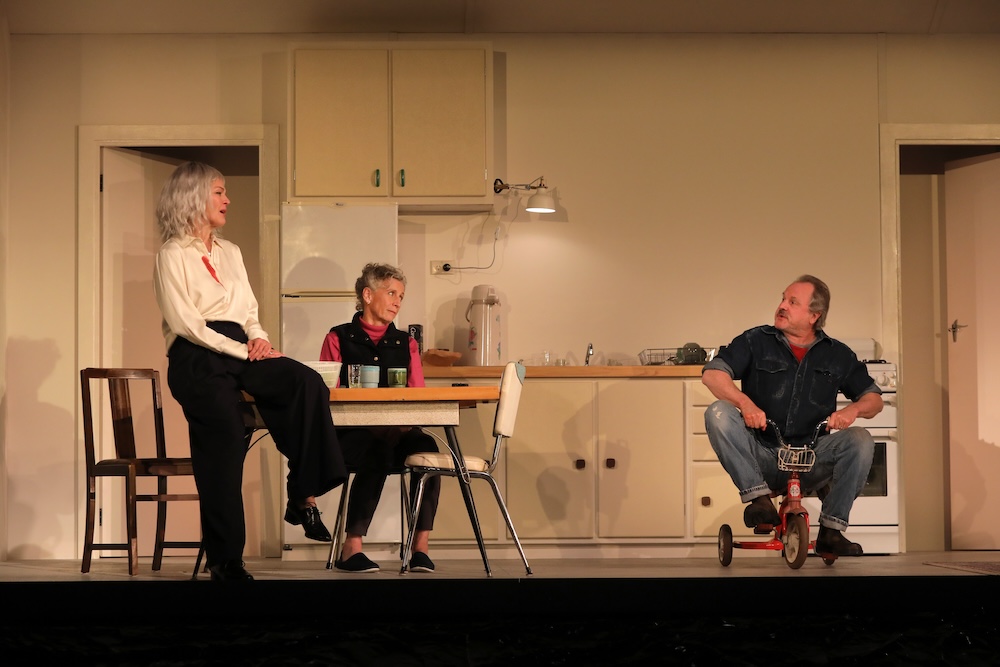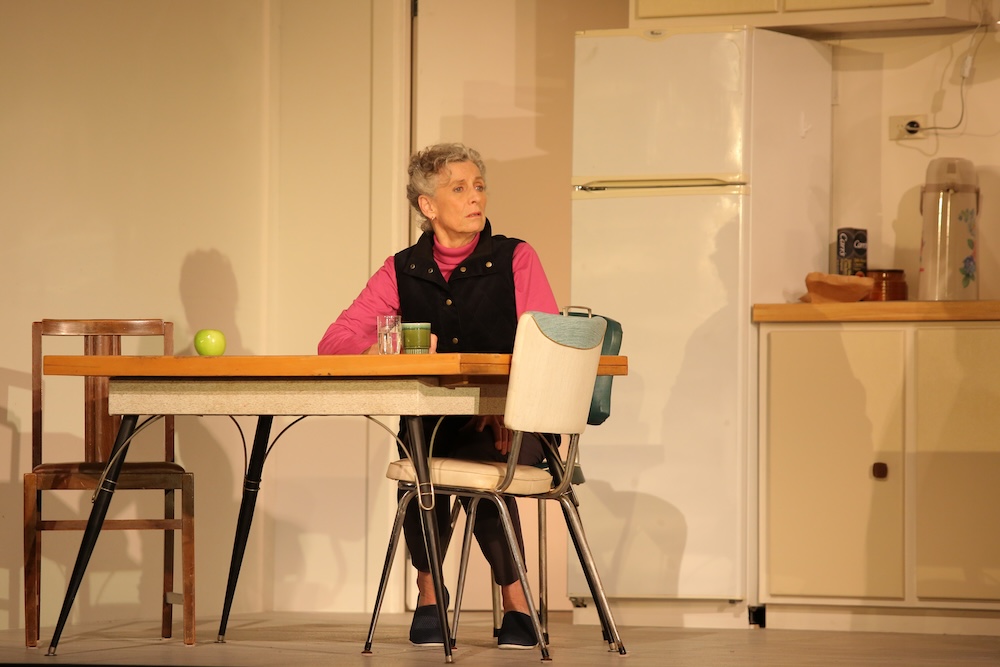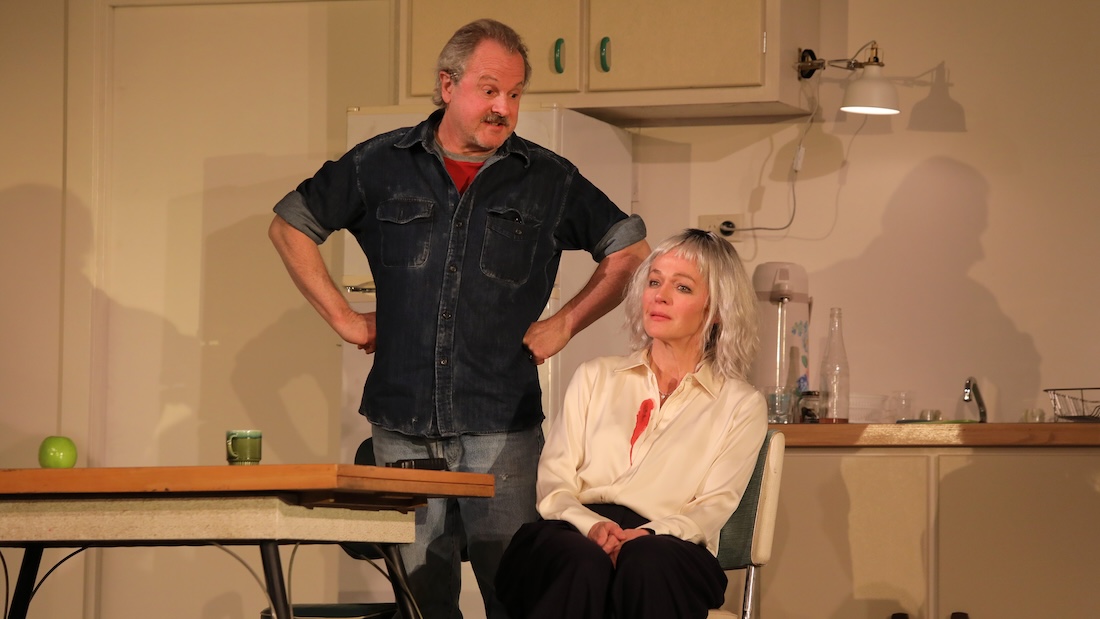
Review: The Children at State Theatre Centre of WA
The Children at State Theatre Centre of WA
Thursday, August 29, 2024
Black Swan State Theatre Company captivates with a devastating tale of nuclear catastrophe, betrayal and sacrifice.
For those familiar in any way with the name ‘Black Swan State Theatre Company’, the expectation of emotional turbulence and serious, thought-provoking storytelling is undoubtedly par for the course. Though certainly not unwelcome, grief, rage, jealousy and fear are familiar friends to the company that is so well-versed in articulating that which is often so determinedly avoided in theatre. The Children has proved no different.
Adapted from award-winning playwright Lucy Kirkwood’s original script, for Australian audiences, The Children is a rich narrative of unrequited love, unspeakable terror and unavoidable responsibility.
Retired nuclear scientists Hazel and Robin live alone, isolated in a small cottage after fleeing the devastation of a nuclear disaster. Both privately grapple with individual experiences of loss and guilt. The arrival of an old friend, Rose, and an urgent task catastrophically threatens the fragility of the life they’ve built and the future they’ve planned.
With one act and three cast members, The Children is one of the more pared-back of the recent Black Swan catalogue and/or Kirkwood’s repertoire, but finds strength in its simplicity and stillness. The action of the show in its entirety unfolds in the paired-back domestic safety of the couple’s living room and kitchen. As characters weave through one seemingly continuous scene and increasingly witness the implosion of their lives and futures, they are grounded by the immovability of the domestic space—despite its role as both fortress and prison.
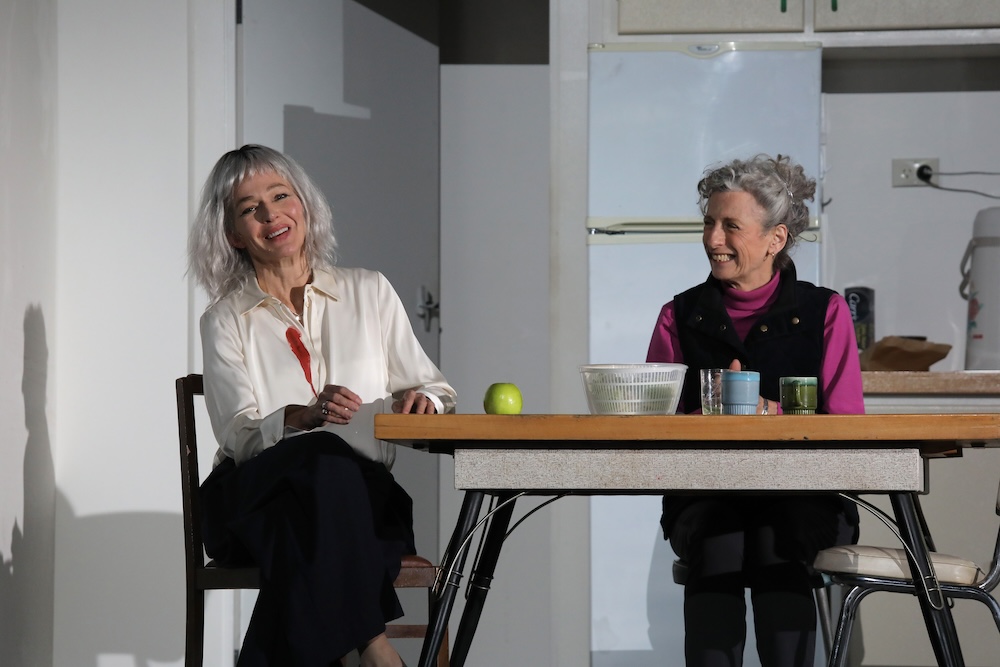
The Children
Bruce McKinven’s realisation of the setting as a paired-back and modest to the point of an almost sterile ‘living’ room is powerfully bleak, communicating both Hazel’s clinical obsession with longevity and life and Robin’s rejection of domesticity and fidelity. Flawlessly executed, the absence of ‘set-dressing’ demands full attention on the characters.
Matt Marshall’s lighting design is flawlessly integrated within McKinven’s set design.
Moments of comfort and safety flow seamlessly into sterility and anxiety with adjustments in lighting temperature. Emanating directly from diegetic lighting fixtures throughout the set, the domestic space appears to morph and pulse in response to the characters under the changing light patterns.
Rachael Dease’s compositions and sound design also blended seamlessly into the scenographic topography, melodising silence and stillness in a way that felt both calming and smothering. Avoiding the fatiguing trap of melodrama to which realism often falls prey, Dease’s compositions in the more intense moments of the script sat neatly and subtly above conflict and tension, woven into the scene itself.
Teeming with heavy-hitting Australian talent, the cast of the show were no strangers to the Black Swan stage. Particularly, Humphrey Bower and Caroline Brazier, who returned to the stage after portraying a husband and wife in Black Swan’s 2023 production Things I Know To Be True. The emotional intensity and ferocity of the pair’s previous roles strongly elevated the on-stage tension and enhanced the visibility of a painful history between characters Robin and Rose in The Children.
Bower’s embodiment of the earnest yet insufferably unfaithful and occasionally pestilent Robin was intriguing. Tackling a script that constructs a selfish and often quietly predatory man, Bower’s grounding of Robin as an endearing, no-nonsense, seemingly level-headed character was a skilled exercise in building complex characters.
Brazier’s embodiment of Rose was excellent. The execution of Rose’s descent, eroding her fragile façade of an adventurous and strong-willed woman with an unshakeable sense of self and self-interest to reveal her most private self as a guilt-ridden and anxiously attached person, was captivating. With a pacing expertly engineered to increasingly align the audience with Rose’s character as the play descends towards her catastrophic proposal.
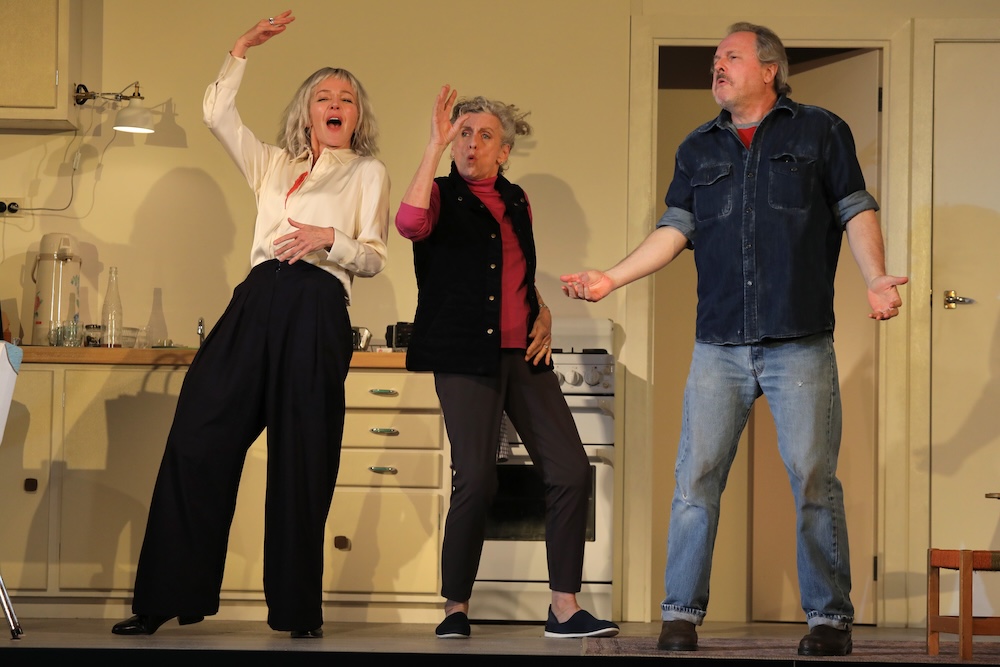
The Children
Finally, Nicola Bartlett’s embodiment of Hazel was captivating. A refreshing take on the yoga-dedicated, kombucha-swilling retiree, Bartlett’s foregrounding of Hazel’s fear of mortality and loss is so poignant against the background of sacrifice and betrayal that the other characters demand of her and subject her to. Bartlett’s grounding as the unconditionally maternal figure and domestic guardian in the space avoids fatiguing the archetype and instead offers a powerful surrogate through which the audience experiences the magnitude of nuclear disaster and the immensity of their final sacrifice.
Overall, the script was engaging, for an hour and forty-minute play without an interval, and surprisingly witty throughout. However, for a play of that length, a surprising amount of time lapsed before the actual ‘action’ of the play. While ideally the scenes preceding the action deeply establish characters, in this case the time taken to ‘get to the point’ of the plot functioned only to distance the audience from the action itself.
Cramming complex character reactions, epiphanies and fatally self-sacrificing decisions into the latter section of the play meant that the complex and painstakingly detailed characterisation was lost to exaggerated emotions devoid of nuisance. Hazel’s initial aversion to sacrifice is rendered as almost a childish response; Robin’s own embrace of mortality becomes a pathetically misogynistic ricocheting of blame onto Hazel for wanting to live too much; and Rose’s own mortality and medical trauma are lost as a convenient plot point. While not the fault of the actors or Black Swan crew, this was a highly challenging element of the show.
Overall, The Children is undoubtedly a success. The pervading sense of death that lingers above the characters at all times is infectiously apparent and imbues the show, with its eerie domestic setting and sound design, with a quiet anxiety. Not only about ageing and health, but more importantly, about the unavoidability of climate disasters in the face of human hubris and the sacrifices that will be required to make amends. The Children is, while an unlikely description, a modern love letter to the realities of living in an era of climate anxiety and scientific misadventure. It’s certainly an event that demands to be experienced and will leave audiences returning to its living room and contemplating each moment, whether willingly or otherwise, once the curtain has closed.
BEC WELDON
Photos by Phillip Gostelow

